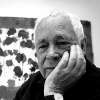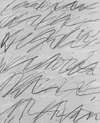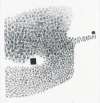Willem
de Kooning
Willem de Kooning spearheaded Abstract Expressionism with his vigorous brushwork and emotive use of colour. If you’re looking for original Willem de Kooning prints and editions for sale or would like to sell, request a complimentary valuation and browse our network’s most in-demand works.
Willem de Kooning art for sale
Discover Willem de Kooning prints for sale, exclusively available through our private network of collectors. Explore signed and unsigned screenprints, lithographs, digital prints, and rare editioned proof prints by era-defining blue chip artists.
Sell Your Art
with Us
with Us
Join Our Network of Collectors. Buy, Sell and Track Demand
Biography
Born in the Netherlands in 1904, Willem de Kooning's journey began when he left school to apprentice at a commercial art firm. Enrolled in evening classes at the Rotterdam Academy of Fine Arts and Sciences, he honed his skills, which would later determine his innovative approach to painting. In 1926, de Kooning stowed away to America, eventually settling in New York City, where he immersed himself in the burgeoning art scene.
His early works of the 1930s reflected a blend of figuration and abstraction, indicative of his lifelong tension between the two. He found his stride in the 1940s and 1950s, with the emergence of his iconic Woman paintings, which invoked primal emotions through their visceral, often aggressive representations of the female form. These works garnered both acclaim and controversy, underscoring the relationship between figure and abstraction that he navigated throughout his career.
His later years saw a shift towards more lyrical and fluid abstract landscapes, as seen in his celebrated works from the 1970s, where broad, sweeping strokes and vibrant colours conveyed a sense of spontaneity and dynamic movement. Despite battling with ill health in his later life, de Kooning continued to paint, his later works reflecting a more subdued, contemplative approach.
De Kooning's impact extends beyond his canvases. His career was punctuated with significant accolades, including the prestigious Presidential Medal of Freedom in 1964 and the National Medal of Arts in 1986. His works were celebrated in numerous solo exhibitions, notably at the Museum of Modern Art, New York, which hosted retrospectives that cemented his legacy.






















